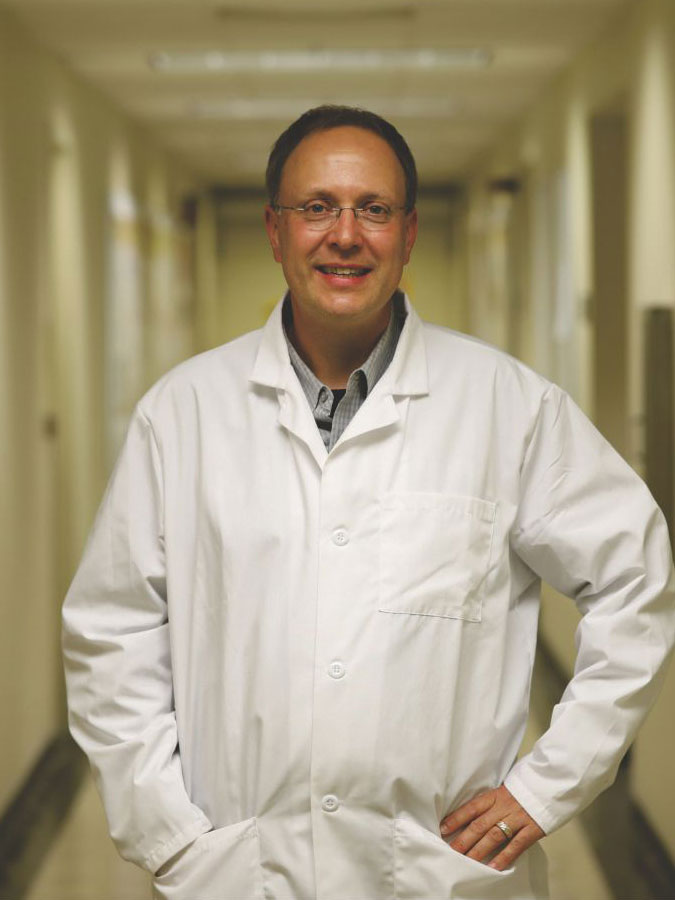Dr. Bernd Zechmann
Director and Associate Research Professor

My interest in biology was sparked in high school, which I attended in the small alpine village town of Radstadt (Austria), by my former biology teacher who introduced me to the wonderful world behind plants, animals, humans and microorganisms.
After military service I started my undergraduate studies in biology and botany in 1995 at the University of Graz (Austria) which I finished in 2001 with a masters degree. From 1998 to 1999 I studied at the University of Oklahoma where I got introduced to electron and light microscopy. In 2003 I finished my PhD degree in biology and botany at the University of Graz in Austria. I spent the following years as postdoc at the University of Graz investigating antioxidative defense of plants against stress and developing new methods of sample preparation for electron and light microscopy. In 2009 I achieved my postdoctoral lecture qualification (habilitation). Starting in 2009 I spent several years at different research institutes and universities such as the University of Oklahoma (USA), University of Fribourg (Switzerland), John Innes Centre (UK) and Technical University of Graz (Austria). During that time, I also continued in research and teaching as associate professor at the University of Graz.
In August 2014 I joined Baylor University as Director of the Center for Microscopy and Imaging. My main research interests are the investigations of the 2 and 3 dimensional ultrastructural changes in different organisms during abiotic and biotic stress conditions by electron and light microscopy. Additionally, I am interested in developing new methods of sample preparation for light and electron microscopy and in the compartment specific importance of antioxidants and reactive oxygen species during the response of organisms (plants, bacteria, human pathogens) against environmental stress. As the director of the CMI I am dedicated to teaching researchers and students to use our microscopes to explore the smaller details of our world in a scientific way based on hypothesis driven principles and to support Baylor University’s mission outlined in Illuminate.